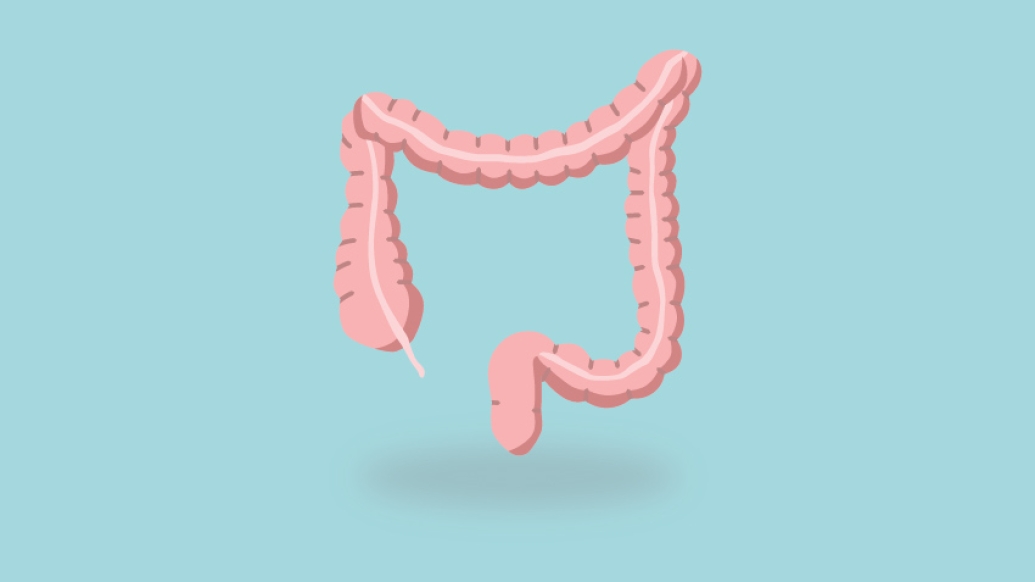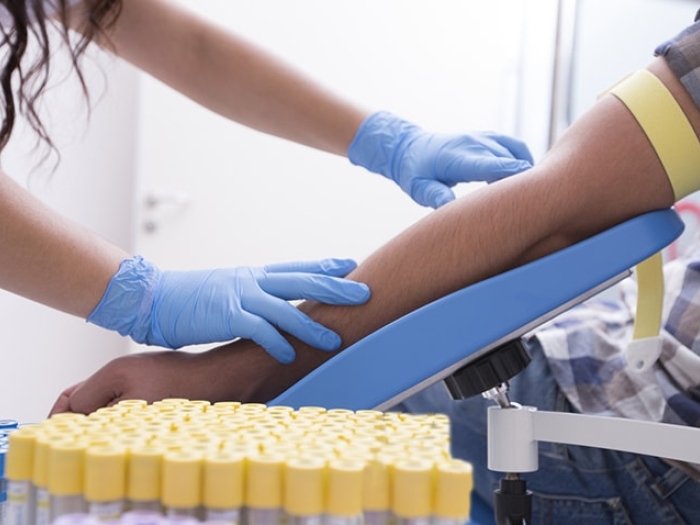Colonoscopies are a necessary milestone to detect colon cancer. How Michigan Medicine doctors are taking steps to make the crucial screening a little easier.
1:00 PM
Author |

This post was updated on Feb. 24, 2023.
Thanks to their ability to detect polyps and other signs that could indicate the presence or risk of colon cancer, colonoscopies can be lifesaving.
MORE FROM MICHIGAN: Sign up for our weekly newsletter
If any smaller polyps are detected during a colonoscopy, doctors can remove them right then, before they become cancerous.
But the prospect of the procedure itself — inserting a thin, flexible tube equipped with a tiny video camera that allows a doctor to look inside a patient's large intestine — could be frightening to some patients.
An honest conversation can help ease those fears.
"A lot of times people will tell me their concerns, and I'll say, 'Well, that doesn't really happen,'" says Danielle Kim Turgeon, M.D., a Michigan Medicine gastroenterologist.
Thanks to a sedative administered in advance, many patients have no memory of the 30-minute test upon waking.
Adds Turgeon: "The most common thing that is said to me and my nurses when we're all done is, 'Are you ready to start?'"
The effort is well worth it: Colon cancer is the third-leading cause of death for men and women in the United States.
Still, Michigan Medicine doctors are working to make the exam a little easier on the recipient.
"Anything we can do to make a colonoscopy more comfortable helps encourage patients to get their regular screening test," says Turgeon. "The best screening test is the one that gets done."
Here are two ways the experience is improving:
Less hassle before
Preparing for a colonoscopy involves several steps — including drinking up to 4 liters of a prep solution with nonabsorbable electrolytes to help cleanse the colon.
SEE ALSO: Should Young People Get a Colon Cancer Screening? It Depends on Their Risk
"It pushes water down through, like you're flushing a toilet through pipes," Turgeon says.
But the liquid solution may cause nausea for some people, which can lead Turgeon to prescribe anti-nausea medication. (The taste of the prep liquid, she notes, has improved in recent years.)
Others may instead take a pill regimen as a substitute. It involves 32 pills taken with clear liquids — and still achieves the intent: diarrhea to clean out the colon so a doctor can get a comprehensive look during the exam.
Reducing discomfort after
In the past, air was pumped through the colonoscope tube to inflate the colon so doctors could get a better look at its lining to check for polyps and other abnormalities.
That method, while necessary, often caused cramping and abdominal pain that lasted for several hours after the procedure. And too much air could lengthen the colon and make navigation more difficult for the doctor.
Michigan Medicine has since adopted a strategy that's equally effective without the unpleasant side effect: using carbon dioxide instead.
"Studies have shown that recovery time is shorter with carbon dioxide because people are more comfortable," says Turgeon.
That's because, compared with air, carbon dioxide is more rapidly absorbed and expelled through the lungs, so there's typically less cramping afterward.
The small change can make a big difference when recovering from a colonoscopy.
To schedule a colonoscopy with Michigan Medicine, call 1-877-758-2626

Explore a variety of health care news & stories by visiting the Health Lab home page for more articles.

Department of Communication at Michigan Medicine
Want top health & research news weekly? Sign up for Health Lab’s newsletters today!





